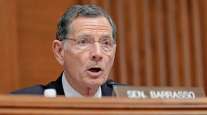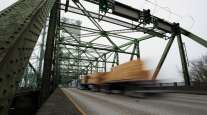Senior Reporter
Amtrak Chief Joe Boardman: ‘Economy Will Begin to Suffer’ if Infrastructure Not Improved

WASHINGTON — Amtrak chief Joe Boardman on June 2 told House lawmakers that aging infrastructure across modes of transportation around the country needs to be modernized to improve the flow of goods and accommodations for travelers.
“We as a nation must begin to make an equity investment, even if we have to find other ways to do it with third parties, public-private financing. It has to occur for the future or our economy will begin to suffer. That needs to happen,” Boardman told members of the Transportation and Infrastructure Committee during a lengthy hearing about the May 12 deadly derailment of an Amtrak train in Philadelphia.
Boardman’s sentiment was shared by several Democrats on the committee. Rep. Peter DeFazio of Oregon, the panel’s ranking Democrat, said upgrades along Amtrak’s Northeast corridor and the region’s transportation need to be addressed.
'SHAMEFUL AND DISGUSTING:' Zeldin attacks Dems at hearing (w/video)
“Despite increasing demand, federal investment in Amtrak has fallen behind, growing the backlog of critical infrastructure needs on the corridor,” DeFazio said. “The list of critical needs extend far beyond just bridges and tunnels.”
Most House Republican leaders say they will await the National Transportation Safety Board’s final report about accident and have avoided focusing on the Northeast’s infrastructure after the derailment. Former T&I Chairman John Mica (R-Fla.), a staunch critic of Amtrak, suggested poor management decisions have hindered Amtrak’s operations.
Meanwhile, a 2013 survey from the American Society of Civil Engineers looked into the country’s rail system, giving the infrastructure a grade of C-plus.
“In 2012, Amtrak recorded its highest year of ridership with 31.2 million passengers, almost doubling ridership since 2000, with growth anticipated to continue. Both freight and passenger rail have been investing heavily in their tracks, bridges and tunnels as well as adding new capacity for freight and passengers,” the group of engineers wrote.




